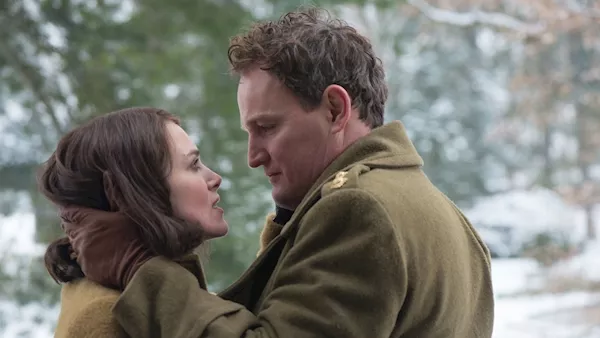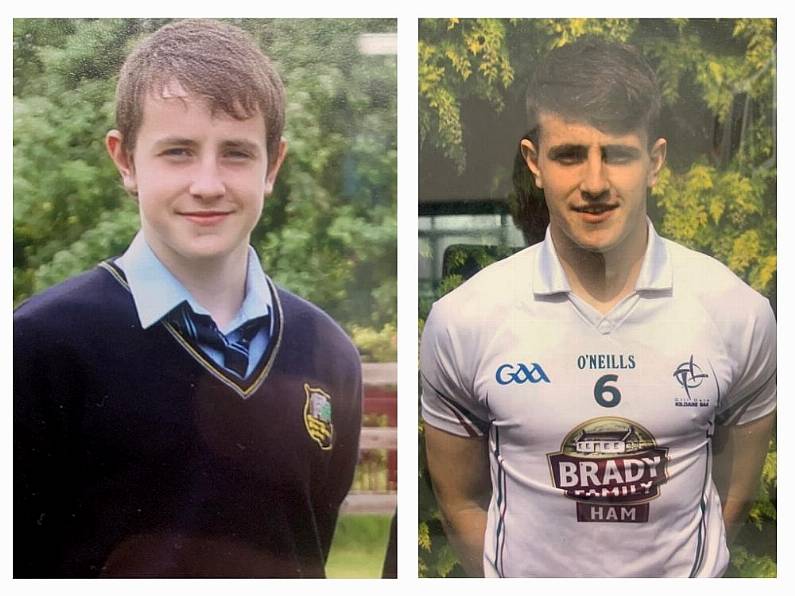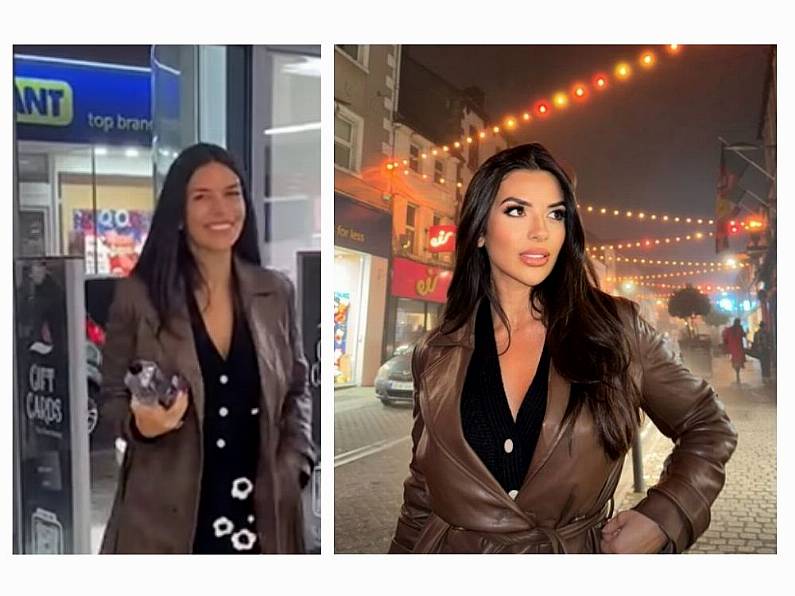The Aftermath sees Keira Knightley star as Rachael Morgan, the wife of a British colonel living in 1946 post-war Germany. The actress tells Georgia Humphreys about the film's powerful themes, and how she approached the emotive role.
There is a particular character trait that Keira Knightley looks to play out on screen.
"I like a bit of anger," she enthuses. "Love it!"
It is certainly something her two latest roles have in common; as a French literary icon in Colette, and now The Aftermath, in which she plays bereaved mother Rachael Morgan, who arrives in the ruins of Hamburg following the Second World War to be reunited with her husband.
"I mean, rage is always in my work a little bit," the Teddington-born actress, 33, known for films such as the Pirates Of The Caribbean series, Pride And Prejudice and Atonement, elaborates.
"I do like exploring female rage, you know? I'm interested in it in myself, in my friends. I'm like, 'It's very much there' and I think it comes out in interesting directions."
The Aftermath is based on the novel by Rhidian Brook and follows Rachael and her husband Lewis, a British colonel charged with rebuilding the shattered city, as they set off for their new home.
But Lewis (played by Jason Clarke) has made a decision that stuns Rachael: they will be living with the previous owners of the grand house, a German widower (Alexander Skarsgard) and his troubled daughter.
The film explores "grief and and trying to reconnect to a partner who is suddenly a stranger", notes Knightley.
"And I felt like that was something most adults can identify with. If you've had failed relationships or whatever, or you've had break-ups, there is that moment when you suddenly look at the person that you should know the best in the world, and they're a stranger, and you're a stranger to them.
"Now, normally that's when we break apart. But in this, they're trying to meet each other again and I thought that was kind of an extraordinary thing as well - how do you do that?"
The background of The Aftermath is that when the war ended, Germany was divided among the British, the Americans, the Russians and the French, and together their mission was to help rebuild the nation.
In Hamburg, Germany's second largest city after Berlin, there were scenes of devastation, after 100,000 people were killed following a five-day bombing raid by the Allied forces in 1943.
And millions of German citizens were either homeless or without food, fuel, or other necessities when the British arrived (the native population was barred from having any involvement in running their own affairs).
This film allows for a very different view of post-war life from the one we're used to seeing on screen, suggests an expressive Knightley, who is articulate as she reflects on several questions the film raised for her.
"I think the brunt of most conflicts, the civilians take it," elaborates the star, whose first major acting role came about in 2002 family comedy drama Bend It Like Beckham.
"And we very often don't look at the civilian casualties, we don't look at the toll it would have taken on those civilians.
"I was really interested in that, and there's lots of shots where you go through the rubble of Hamburg, where you see the women in the rubble, picking up the pieces.
"And I thought that was a really interesting image as well, because of course, who are left behind? The women and children."
She continues: "So yeah, it touches on all of those things and again it's interesting, you think about this period, you think about something very different; you don't go, 'It must have seemed post-apocalyptic at the time', how on earth do you even start to rebuild a society, literally rebuild cities, and rebuild yourself?"

Picture: PA Photo/Twentieth Century Fox Film Corporation/David Appleby.
It is unsurprising to hear Knightley affirm that, after reading the script by Joe Shrapnel and Anna Waterhouse, this was a story that she simply couldn't get out of her head.
It was a period she was very unaware of before, even though she has studied the Second World War and has starred in (and seen) many films featuring the war.
"I didn't know that the English occupied parts of Germany after the war. I'd never really thought about what that must have been like; I'd never thought about, 'How do you go, five months after literally trying to kill each other for the previous six years, and suddenly try and see your enemy as a human being again? How does that work?'"
"And also the amount of loss that that generation suffered; I mean, it's a very obvious thing to say but I should imagine that there weren't very many people who weren't touched in a very direct way by loss.
"And how do you continue with your life, how do you rebuild your life after that?"
As you have likely gathered by now, The Aftermath is a tearjerker.
There is the focus on Rachael's strained marriage to Lewis, and how grief gives way to passion and betrayal in the charged atmosphere they are living in.
But it is also about the couple having lost a child during the war; a universal theme of how you have to try to repair yourself, to move on with life.
How difficult was it for Knightley, a mother-of-one, to contemplate what parental grief must feel like?
"I didn't do it in that way, I couldn't do in that way," confides the actress who has a three-year-old daughter with her musician husband, James Righton (the couple married in 2013).

Picture: Twentieth Century Fox Film Corporation/David Appleby
"I felt incredibly empathetic to this character. I think there's various things that she does which are not exactly likeable, but I completely understood where she was coming from."
Research for the role included reading an article by a woman who had lost a child, in which she discussed how there is no name for it.
"If you're a child that's lost parents, you're an orphan; you're a widower or a widow, but there's no name in the English language for this because it is so horrific, and therefore what are you?
"That kind of idea, 'Are you still a mother if you've lost a child?' is something that just, I mean, is the most horrific..." she trails off, quietly.
"I think that's where this character sits, and how on earth do you continue your life after that? How on earth do you forgive yourself? How on earth do you forgive your partner?
"They're huge questions and I think it was something that this story dealt with, and also offered hope and a kind of redemption within all of that. I thought that was quite extraordinary."
-Press Association






